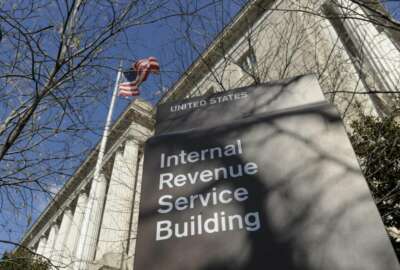To listen to the Federal Newscast on your phone or mobile device, subscribe on PodcastOne or Apple Podcasts. The best listening experience on desktop can be found using Chrome, Firefox or Safari.
- Agencies will need to show their evidence-based decision-making skills in their fiscal 2021 budget requests. The Office of Management and Budget, in its Circular A-11 update, has tasked agencies with outlining the progress they’ve made in implementing the Foundations for Evidence-Based Policymaking Act, signed into law in January. Agencies must provide OMB with updates on how they’ve developed enterprise-wide learning agendas, and annual evaluation plans. (White House)
- Improving customer experience in government, under the President’s Management Agenda, is also a new goal in OMB’s A-11 update. The memo calls on high-impact service providers to submit annual customer experience self-assessments to OMB by January 31. Those agencies must also show how they’ll improve their customer experience by March 31. (White House)
- OMB threw a small twist into the annual IT budget guidance. Agency chief information officers must evaluate every major IT investment to determine the level of risk the program faces. This is one of several changes the Office of Management and Budget included in the 2021 IT budget guidance released late last week. OMB says CIOs must review factors such as contractor oversight, human capital and requirements management. Then, they must rate the investment on a scale of 1 to 5 and explain the final risk assessment. Additionally, agencies must now rate the risks and develop a mitigation plan for an IT project that is in the business case stage. (White House)
- President Donald Trump signed the Taxpayer First Act into the law. It will allow the IRS to once again expedite hiring for tech leadership positions. Under this critical pay authority, the IRS can make up to 40 hires for four year stints at the agency. It hired 168 people between 1994 and 2013, before Congress let it lapse. (Federal News Network)
- The General Services Administration marked 70 years as a federal agency yesterday. President Harry Truman created GSA in 1949 to have one agency to help the government avoid duplication, excess cost and confusion of buying supplies and providing office space. GSA now has 11 regional offices and manages more than 370 million square feet of workspace. It also oversees more than $65 billion a year in acquisition. (General Services Administration)
- There are growing concerns the Federally-Funded Research and Development Centers are suffering from scope creep. The Professional Services Council told Senate Appropriations Defense Subcommittee lawmakers, more and more FFRDCs are moving into the professional services sector and taking competitive business away from for-profit companies. PSC asked the committee to add language to the 2020 DoD spending bill to rein-in FFRDCs. (Federal News Network)
- The Defense Department is conducting some revolutionary research in space. The Air Force Research Laboratory successfully sent 24 experimental satellites into space. Part of the mission is the laboratory’s Demonstration and Science Experiments spacecraft. The flight experiment will conduct new research to advance the Defense Department’s understanding of the processes governing the Van Allen radiation belts and their effect on spacecraft. Another spacecraft sent up in the same rocket will demonstrate the newly developed energetic non-toxic propellant. The fuel performs at a rate 50% higher than hydrazine, which classic rocket fuel is made of. It’s also a safer alternative for humans handling it on the ground. (Air Force)
- The Air Force is reducing the amount of time special duty airmen and instructors have to be on tours of duty from four to three years. Airmen already serving in one of those positions have 30 days to accept a shortened tour or to continue their four year tour. The Air Force says it is changing the length to address retention and burnout issues. (Air Force)
- A former Chief Strategy Officer with the U.S. Agency for Global Media has plead guilty to stealing more than $40,000 in government money. The Justice Department says Haroon Ullah admitted he obtained the funds by submitting falsified hotel invoices and inflated taxi and Uber receipts. He also created a falsified letter from a medical doctor claiming he needed to fly in business class at government expense because of a sore knee. Ullah faces a maximum penalty of 10 years in prison when sentenced on October 11. (Department of Justice)
- A strained U.S. Customs and Border Protection reacted to a published account tying its agents to a private Facebook group. A ProPublica story detailed the group, which it reported having more than 9,000 current and former agents, and members’ graphic postings. CBP issued two statements. Matthew Klein, assistant commissioner for the office of professional responsibility, said he referred the matter to the DHS inspector general. Carla Provost, the Border Patrol chief, said employees violating standards of conduct will be held accountable. (Customs and Border Protection)
- New legislation in the House and Senate is taking at fake audio and videos. The Deepfakes Report Act tasks the Homeland Security secretary to produce an annual report on the state of digital content forgery, or deepfake technology. DHS would also need to assess the technology used to generate deepfakes and how to counter them. Deepfakes are digital manipulations that look and sound like the real thing. Lawmakers are worried they pose a serious threat to national security and the integrity of elections. (Rep. Derek Kilmer)
Copyright
© 2025 Federal News Network. All rights reserved. This website is not intended for users located within the European Economic Area.




